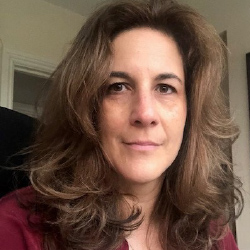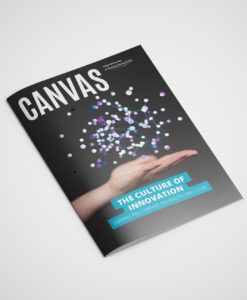
Right at the start of her new position as Chief Executive of Centene UK, we were delighted that Samantha Jones talked to us about what attracted her to the role in the newly formed UK operation of the established American organisation. Sharing her personal and professional experiences, Sam talks openly and enthusiastically about the absolute need for greater integration of care services and the fundamental role that enhanced data availability and usage will play in positively improving health and care at a local and national level in this country.

You have been in your new role as Chief Executive of Centene UK for only a couple of months. What attracted you to the business?
My attraction to the organisation stems from professional experience, but it was also particularly underlined by a recent personal experience.
I was formerly a Director for NHS England leading the vanguard of the national programme focused on prototyping new models of care and working to better understanding where and how integration was needed.
When I stepped down from the national programme I had a bit of a break and was privileged to spend a lot of time with my godmother from her initial diagnosis of motor neurone disease to her death six weeks later. Spending time with someone at the end of life is a privilege, and I felt very lucky to be with her. However, I was also able to see for myself first-hand how the integration of care in London is so incredibly difficult to do. The inability of the multiple care professionals visiting her on a daily basis to communicate with one other was a real challenge for them, and it was really because our systems do not enable this to happen yet in a meaningful way. They were professionally fantastic but there was so much duplication and waste of medication and teams, for example. These are the things that we know are not great but I saw it in real time in a very personal way.
I made a decision then based on that experience – I could see that it was going to be really hard to change the systems and that it would be very hard to rewire, not just from a policy perspective but even more importantly from the cultural shift associated with it. However, I knew that this was what I needed to do.
It really felt that I was offered the opportunity at Centene UK at the right time – Centene has significant experience that we can learn from, as 95 per cent of the revenue is Government-funded, and it believes that the best solutions are the local ones, which we know also to be the case. I wanted to work with a company that has significant experience in supporting and enabling integration across the world and that is where I now am.
You’ve held senior leadership roles in both the NHS and private health businesses: what do you see as the differences in the way public and private sector organisations approach and support innovation?
My career for 28 years has been in the public sector, with two in the private sector before joining Centene UK, so my experience is heavily biased one way. I think it is probably unhelpful framing the two sectors against each other because I believe we have a significant amount to learn from each other.
In the private sector there is a greater sense of challenge and energy to meet targets, as well as greater agility and speed to get there. The mindset is one where if you say you are going to do something then you do it. That also means there is greater adoption of change in this environment – it is almost part of the DNA.
However, I firmly believe that in the public sector we totally downplay achievements of innovation. We don’t spread the innovation as wide as we need to or support it often enough outside the immediate team it will benefit.
I made the decision to move to the private sector because I think I can learn and bring public and private perspectives together to improve care for the patient we are serving. We need to learn and share with each other, that is absolutely fundamental.
How is Centene UK impacting the health and care space in the UK?
We are right at the beginning of the journey in the UK. We are effectively a start-up in a large global company, with the aim of supporting and enabling integration in the health and care sector in this country. So, I think it is probably too early for me to answer this question fully yet.
However, what I do know is that the capabilities and work in integrated population health systems in Ribera Salud in Spain and from the US, which are supported and backed by Centene are those which we could capture and use in the UK. For example, the ability to take a population-based health data set and identify those individuals both at risk now and in the future, if the right care intervention is not undertaken, is significant. Greater integration is required to offer local care systems access to single source truth-segmented data with multi-agency teams using care management portals to help patients. We need to be open with teams and our datasets. If everybody is working to the same system with the same data we will have much better success.
However, it is not just about the data and the technology for the sake of it; it is about using the technology to enable change to happen faster through both the professionals and the patients.
Centene has significant experience in utilising tech and data through the individuals providing the care. One aspect I really like is the use of Centene University which trains and supports leaders, both clinical and non-clinical across the organisation to better understand change required in each care system built around the user. This is really about making our care systems better and more efficient.
How innovative do you consider the broader health and care system in the UK to be? Is there enough encouragement and resource to ensure both the innovation, and the system more broadly, thrives?
I think our health and care system is innovative, absolutely, and I think there is encouragement for this, but I think there is a challenge and responsibility for us to oxygenate and enable that innovation to happen consistently. We really need to be enabling our teams and professionals to be the very best they can be as that is how innovation flourishes and thrives. In the UK I think innovation is more about the softer culture piece, rather than the harder policy piece.
How is technology helping to drive innovation in the health and care sector, considering both private and public providers?
If you consider that four out of five adults own or use a smart phone and manage to control almost every aspect of their lives from these devices, we really must start enabling patient and/or carers to have more control of the care that is needed.
We are helping to develop a care sector that is fit for the years ahead and this needs to be consistent. I am not talking about applications specifically, what I mean is if someone phones up a care provider, GP or other care professional then that patient or carer is identifiable easily. It doesn’t take away the fundamental right to data security or stopping the conversation between a patient or carer and the professional but we really need to start providing both sides with the data to make the right discoveries. Greater use of technology and integration is freeing up the time to do the right things. We are not talking about replacing people, and that is a challenging area of conversation, it absolutely is about using their very best skills and removing the need for the tasks that they don’t need to do.
Looking more specifically at Centene UK how integral is technology in the organisation’s strategic approach? Can you share an example of this?
I think it is probably too early for me to talk specifically around this either. However, what is fundamental to the global perspective is accelerating and enabling changes that are required in health and care at a population health level and encouraging the most effective and efficient use of time and skills. We are looking at examples in our work in areas such as YO Salud where everything is open and the patients communicate all the time with the doctors, without inundating or flooding GPs with information.
How does Centene UK look to engage with partners and what are the criteria in which you aim to collaborate?
It is all about picking the right partnership. I view it almost in the same way as when my husband and I picked each other – we shared the same values and wanted to spend time together doing the same things. It is exactly the same in a working partnership. You need to consider if you have a common purpose, if the values are shared and whether the resulting benefits and combined culture can be maximised by existing in partnership together.
Our role at Centene, to be very clear, is to work to the care sector. It is to enable the Foundation Trusts, Community Trusts and local authorities to do the work that needs to be done to support system integration. We therefore need to have the right relationships and behaviours to do that and we fully understand that.
Centene is part of a broader global organisation with a particularly large focus in North America and operations in Spain. How are innovations in other health and care systems impacting on the approach being taken by Centene UK?
Centene is a large corporation and it has a presence in the majority of the states in North America. We are looking to learn from what is being done in these other geographies and make it context-specific for us here. The thing that I absolutely know is that there is no point in a ‘lift and shift’ attitude; it really must be right and appropriate for the UK and how we can work here.
Finally, can you share your aspirations for Centene UK over the next 3-5 years?
I want to know that we are a fundamental part of supporting and enabling integration of care models because this is a continuation of things that I have done throughout my professional life. People don’t get ill in silos, we all know that, and we also know that care integration is hard to do but we really want to do it the very best way that we can. Ultimately, I want to be working alongside many organisations and teams across the country to make a quantifiable difference to those people who use care services.
Samantha Jones, Biography
Samantha started her NHS career as an adult and paediatric nurse and was a national management trainee. Having worked in a variety of operational management roles, and in the national clinical governance support team, she became the Chief Executive of Epsom and St Helier University Hospitals NHS Trust.
Following this, Samantha worked in the independent sector before she was appointed Chief Executive of West Hertfordshire Hospitals NHS Trust in February 2013.
In 2014, Samantha was named as the Health Service Journal’s (HSJ) Chief Executive of the Year, and West Hertfordshire’s ‘Onion’ was highly commended in the patient safety category of the same awards. ‘Onion’ was an initiative which focused on supporting staff to be open and transparent about concerns and empowered them to help address them.
Until June 2017, Samantha was Director of the New Care Models Programme, leading on the implementation of the new care models outlined in the NHS Five Year Forward View. This included launching 50 vanguards to take the lead developing new care models to act as the blueprints for the NHS.
Following a period of working independently across a range of private organisations and institutions, connecting business and industry with health to design and deliver better healthcare solutions, in January 2019, Samantha was appointed as CEO/President of Centene UK to lead the UK’s strategy aimed at enabling and supporting integrated care across the UK.
Leveraging technology to meet population needs
YO Salud case study
YO Salud is the health portal for the Ribera Salud Group in Spain, providing citizens with multi-modality worldwide access to their personal medical records, a secure communication channel to interact with their care providers, and health promotion and education content specific for their age, sex, and existing health conditions.
Currently utilised by more than 135,000 citizens (44 per cent of the population covered), YO Salud actively engages citizens in the management of their health needs via the portal resulting in increased citizen satisfaction with their care experience, reduction in care gaps within the population and a reduction in face-to-face primary care visits. It has also resulted in a significant reconfiguration of the Primary Care workload.
Citizen functionality:
- Appointment scheduling and requests
- Secure citizen to nurse/doctor communication with 48-hour response times, average response time 22 hours
- Video consultations with nurses and doctors
- Health assessment questionnaires
- Comprehensive medical record
- View lab and radiology results
- Ability to upload electronic clinical documents
- Register and share information and home monitoring results for chronic conditions
YO Salud has also benefited the clinician community serving the population, significantly impacting daily workflow and how primary care practice operates within Ribera Salud with dedicated “administration time” to access YO Salud each day to manage citizen questions and inter-clinician communication.
Clinician Functionality:
- Secure clinician to citizen and clinician to clinician communication
- Access to comprehensive integrated medical record
- Access to lab and radiology results
- Active management of patient lists
- Inter-clinician video consultations
